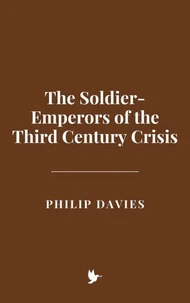This comprehensive study explores the intricate tapestry of Roman religious life, examining how rituals, gods, and domestic worship shaped the identities of individuals, families, and the state. Philip Davies delves into the foundations of Roman religion, tracing its origins in early Italic and Etruscan traditions, and revealing a pragmatic worldview centered on maintaining harmony with the divine through precise ritual action.
The book uncovers the rich pantheon of Roman deities, from the majestic Capitoline Triad to the intimate household gods-Lares, Penates, and the Genius-that governed family life. It reveals how religion permeated every aspect of Roman society, structuring civic festivals, life-cycle ceremonies, and social order through public and private rituals. A central theme is the pivotal role of the paterfamilias as both family patriarch and religious priest, responsible for safeguarding ancestral cults and leading household worship.
The work also highlights the nuanced interplay of ritual purity, pollution, and religious law, illustrating how these concepts maintained cosmic and social balance. Davies further explores the transformative influence of religious syncretism and the imperial cult as Rome expanded, showcasing the empire's capacity to integrate diverse beliefs while reinforcing imperial authority. The decline of traditional Roman religion and its enduring legacy in shaping Western religious and cultural traditions conclude the narrative.
Blending archaeological evidence, literary sources, and historical analysis, this book offers an erudite yet accessible examination of Roman religion's profound impact on the ancient world and beyond, making it essential reading for scholars and enthusiasts of classical history and religious studies.
This comprehensive study explores the intricate tapestry of Roman religious life, examining how rituals, gods, and domestic worship shaped the identities of individuals, families, and the state. Philip Davies delves into the foundations of Roman religion, tracing its origins in early Italic and Etruscan traditions, and revealing a pragmatic worldview centered on maintaining harmony with the divine through precise ritual action.
The book uncovers the rich pantheon of Roman deities, from the majestic Capitoline Triad to the intimate household gods-Lares, Penates, and the Genius-that governed family life. It reveals how religion permeated every aspect of Roman society, structuring civic festivals, life-cycle ceremonies, and social order through public and private rituals. A central theme is the pivotal role of the paterfamilias as both family patriarch and religious priest, responsible for safeguarding ancestral cults and leading household worship.
The work also highlights the nuanced interplay of ritual purity, pollution, and religious law, illustrating how these concepts maintained cosmic and social balance. Davies further explores the transformative influence of religious syncretism and the imperial cult as Rome expanded, showcasing the empire's capacity to integrate diverse beliefs while reinforcing imperial authority. The decline of traditional Roman religion and its enduring legacy in shaping Western religious and cultural traditions conclude the narrative.
Blending archaeological evidence, literary sources, and historical analysis, this book offers an erudite yet accessible examination of Roman religion's profound impact on the ancient world and beyond, making it essential reading for scholars and enthusiasts of classical history and religious studies.

 , qui est-ce ?
, qui est-ce ?